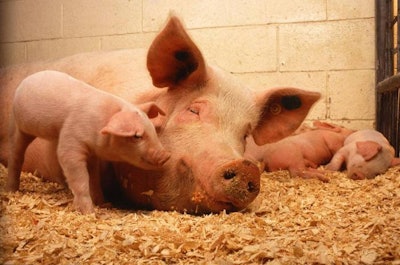
Cargill’s animal nutrition business is expanding its sow research capabilities with the opening of a new technology application center in Britt, Iowa. Under the agreement, Cargill will lease the entire farm, which includes gestation, lactation, and gilt development, and houses nearly 2,000 sows. The Iowa location is ideal for Cargill researchers because of its proximity to the Cargill Global Innovation Center in Elk River, Minn., which allows Cargill to leverage resources for research and to accommodate customer visits and training.
“This application center and partnership creates new opportunities to collaborate on important sow research,” said Brooke Humphrey, global pork technology director for Cargill’s animal feed business. "We can continue to monitor how feeding the sow impacts the performance of offspring all the way to final market weight. We believe that linking our sow and innovation center capabilities together creates a one-of-a-kind innovation capability that is unmatched in the industry.”
Cargill will use this capability to focus on piglet livability, and provide on-farm training to employees in either technical or commercial roles.
“This is a significant upgrade for our on-farm trainings and sow research initiatives for CAN,” said Derek Wulf, swine technology specialist for Cargill’s feed business. "The Iowa farm has been owned and operated by John and Becky Hejlik for 19 years and they have successfully managed a highly productive herd that has become well-known for producing top quality, heavy weaned pigs, allowing us to better align with the performance levels of our customers.”
The size of this farm and its proximity to our research center at Elk River provides a unique research opportunity to study the impact of maternal nutritional status on offspring growth performance and health throughout the lifetime of a piglet.
“Our internal research and data in the literature have provided clear evidence that maternal nutrition during gestation and lactation can either positively or negatively affect newborn piglet vitality and growth later on,” said Qiong Hu, senior scientist at the Elk River Innovation Center. “The outcome from this type of research can help build better sow nutrition strategies to ensure our customers with full-value pigs following birth.”

















